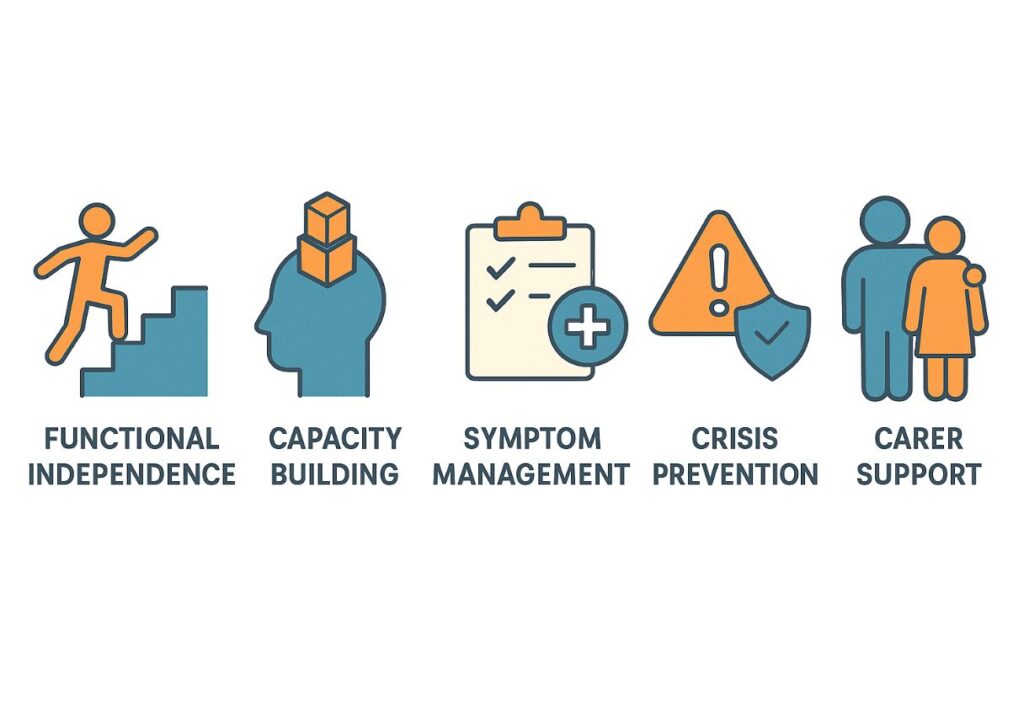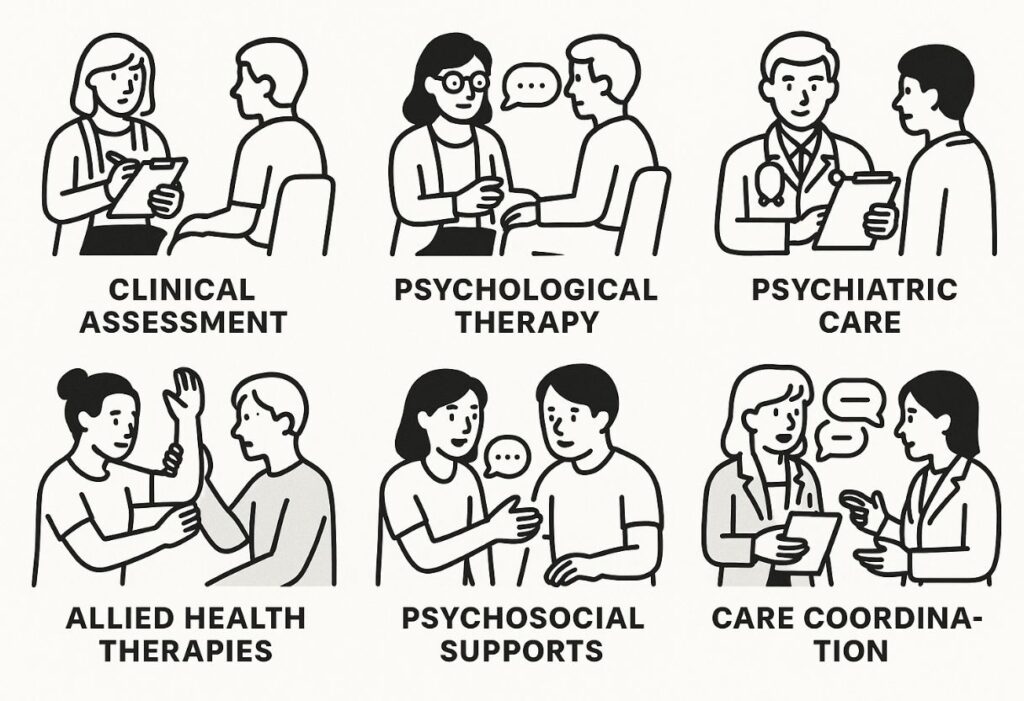NDIS Therapeutic Support Services in Australia
Helping You Achieve Your Goals, Build Independence, and Live a Fulfilling Life
At Takes Care, our Therapeutic Support Services help people with disabilities build skills, improve daily functioning, and engage more fully in life. Under the National Disability Insurance Scheme (NDIS), these services are funded, clinical in nature, and directed toward goals that matter most to you.

Why Choose Takes Care’s NDIS Therapeutic Supports?
At Takes Care, we’re committed to helping you achieve your NDIS goals through tailored, evidence-based therapeutic support. We make it easy for you to connect with our psychologists, and we work closely with you, your carers, and your healthcare team to ensure every step is coordinated and aligned with your plan.
Our approach is built on teamwork, accessibility, and meaningful outcomes — designed to:
- Strengthening Mental and Emotional Well-being
Counselling, psychological therapies, and social work services help build resilience and manage mental health challenges. - Improving Communication and Social Engagement
Education and training for carers enhance support and coordination, promoting stronger social connections. - Encouraging Personal Growth
Our supports empower you to pursue personal goals, build confidence, and lead a fulfilling life. - Supporting Families and Carers
We equip carers with practical tools and guidance to provide effective, compassionate care.


Who Can Benefit
Our services are suitable for:
- NDIS participants of all ages with significant disabilities affecting daily function
- Children with developmental delays or neurodevelopmental conditions
- Individuals with intellectual disability, autism, acquired brain injury, neurological conditions, or degenerative disorders
- People experiencing mental health conditions that affect participation
- Older adults who face cognitive decline, mood changes, or reduced independence
- Families and carers seeking training, support strategies, and coordinated plans
What You will Gain
With our Therapeutic Supports, you may experience:
- Improved functioning in self-care, communication, and community life
- Stronger coping strategies, adaptive skills, and reduced distress
- Increased independence in education, work, social engagement, and daily routines
- Better access to education, employment, and community participation
- More coordinated care across clinical treatment and community supports


NDIS Funding and Therapeutic Supports in Australia
Therapeutic supports are funded through your NDIS plan, making it easier to access the services you need. Our team works closely with support coordinators to help you navigate the system and ensure your funding is used effectively to achieve your goals.
How We Deliver Services
Takes Care is a NDIS registered provider of Therapeutic Supports in Queensland. We deliver services:
- In your home, when practical
- In community settings, to support your engagement
- Via telehealth, when in-person work isn’t feasible
You can book via the NDIS provider portal or by contacting us directly.
Helping You Achieve Your Goals with Therapy and Assistance
At Takes Care, we provide personalised therapy and assistance designed to help you achieve your goals. Our team of skilled professionals works closely with you to understand your needs, build independence, and support you on your journey toward a more fulfilling life. Whether through targeted therapeutic interventions, allied health support, or practical guidance, we are here to ensure you have the support you need to succeed.
Ready to Take the Next Step?
Contact us today to learn how our Therapeutic Support Services can help you or your loved one move toward greater independence and participation.
- Call: 07 3870 9388
- Email / Book Online: https://www.takescare.com.au/book-online
- Request a Service: https://www.takescare.com.au/ndis-psychology-referral-form
Let’s work together toward outcomes you can see and feel.
